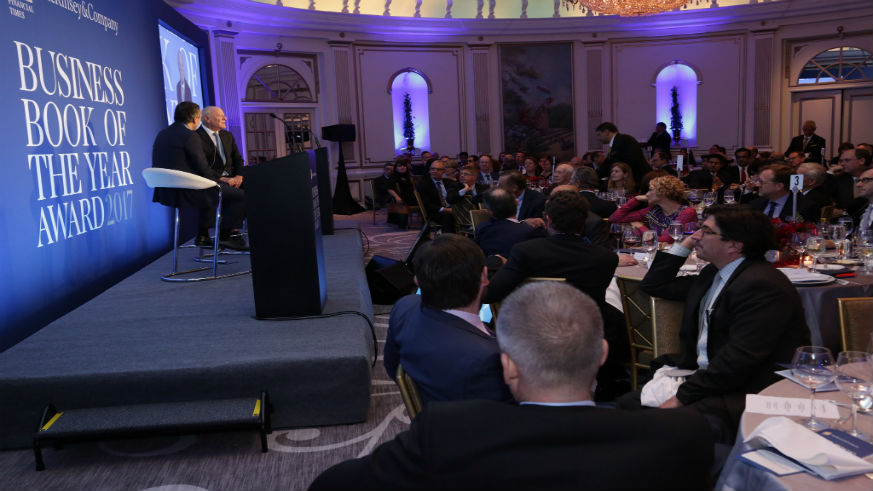There are many unsung genres in the world of literature. Genres that don’t get their just dues amidst a sea of swashbuckling fantasy epics and heart-wrenching memoirs. Not to say some of those books aren’t worth your time, but they definitely take the lion’s share of attention from authors that are doing extraordinary work in the periphery of the public eye. Some of the most overlooked are business books. For some, this is justly so. On a surface level, that tag can send readers running towards the graphic novel section in order to find anything with less of a granite-thick context. But many people may not realize that with everything going on in the world, these authors are writing some of the best examples of long-form journalism and progressive thinking that you will be able to find.
The Financial Times and McKinsey & Company both understand this and have partnered to set up the annual Business Book of the Year Award to highlight literature that provides “the most compelling and enjoyable insight into modern business issues. Including management, finance, and economics.” This year’s award ceremony (and dinner) was held on Monday, November 6th at the elegant Lotte Palace in midtown Manhattan. The event was emceed by Lionel Barber, Editor at the Financial Times, and Dominic Barton, Global Managing Partner of McKinsey & Company. The award was judged by both Barber and Barton along with a panel of judges pooled from some of the most prominent figures in the business world.
To kick the night off, the judges presented the Bracken Bower Prize. This prize was awarded to the best book proposal, by an author under the age of 35, that provides “compelling and enjoyable insight into future trends in business, economics, finance or management”. The winner of this year’s prize was Mehran Gul, a Project Lead at the World Economic Forum, whose proposal, “The New Geography of Innovation”, earned him just under $20k in funding.
In between this award and the main event, Barber welcomed broadcasting legend and business and publishing mogul, Barry Diller for a freewheeling and enjoyable “fireside chat”. The conversation covered a wide variety of topics such as journalistic integrity, the responsibility of social media companies and what the future of the film and television industry will look like after Harvey Weinstein.
Finally, it was time to announce the winner of Business Book of the Year. This year’s shortlist included “The Spider Network: The Wild Story of a Math Genius, a Gang of Backstabbing Bankers, and one of the Greatest Scams in Financial History” by David Enrich, “Janesville: An American Story” by Amy Goldstein, “Adaptive Markets: Financial Evolution at the Speed of Thought” by Andrew W. Lo, “The One Device: The Secret History of the iPhone” by Brian Merchant, “Reset: My Fight for Inclusion and Lasting Change” by Ellen Pao, and “The Great Leveler: Violence and the History of Inequality from the Stone Age to the Twenty-First Century” by Walter Scheidel.
The award was given to Amy Goldstein’s “Janesville: An American Story” which chronicled the harrowing experiences of a small town community in the wake of a General Motors assembly plant closure two days before Christmas in the midst of the great recession of 2008. Goldstein, a Pulitzer Prize award-winning journalist for the Washington Post, had spent years profiling the people of Janesville, Wisconsin (Paul Ryan’s hometown) in the wake of the financial collapse in order to paint this moving portrait of American resilience in the face of adversity.
Goldstein gave thanks to both the judges and all of the authors and was blown away by the honor. “I think the thing that I’m most honored by”, she said, “is that the Financial Times and McKinsey have a definition of business books that is expansive enough to include a book that’s about the effect of a business decision … I had the feeling that we all knew what the economic statistics were like in the great recession but we really didn't know what it was like to lose the best work in town. That’s the story I tried to tell in ‘Janesville: An American Story’.”



















